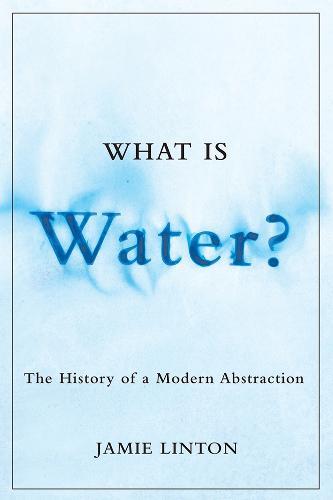Overview
We all know what water is, and we often take it for granted. Because it seems so natural, we seldom question how we see water. But the spectre of a worldwide water crisis suggests that there might be something fundamentally wrong with the way we think about water. Jamie Linton dives into the history of the modern concept of water, that water can be stripped of its wider environmental, social, and cultural contexts and reduced to a scientific abstraction – to mere H20. This abstraction has given modern society licence to dam, divert, and manipulate water with impunity, giving rise to a growing suite of problems. Linton argues that part of the solution to the water crisis involves deliberately reinvesting water with social content.
Full Product Details
Author: Jamie Linton
Publisher: University of British Columbia Press
Imprint: University of British Columbia Press
Dimensions:
Width: 15.20cm
, Height: 2.30cm
, Length: 22.90cm
Weight: 0.580kg
ISBN: 9780774817028
ISBN 10: 077481702
Pages: 352
Publication Date: 01 July 2010
Audience:
College/higher education
,
Undergraduate
,
Postgraduate, Research & Scholarly
Format: Paperback
Publisher's Status: Active
Availability: In Print

This item will be ordered in for you from one of our suppliers. Upon receipt, we will promptly dispatch it out to you. For in store availability, please contact us.
Reviews
Jamie Linton's excellent analysis fills a gap in the understanding of our conceptions of water. His critiques of the water crisis and the new paradigm of Integrated Water Resources Management (IWRM) are simply brilliant and long overdue. The book is easy to read for an audience new to the literature on water from a social science perspective. -- Olivier Graefe, University of Fribourg * Social & Cultural Geography * Linton's message needs to be taken seriously by anyone for whom water is something more than so many molecules of H2O ... it is a message that should be incorporated into both introductory and advanced courses in a number of disciplines dealing not only with water but with all natural resources. -- David B. Brooks, Fresh Water, Friends of the Earth, Canada * Critical Policy Studies, Vol. 4, No. 4 * Linton presents the issues in impressive breadth and depth, and tells a compelling story. Recommended. -- Choice * I.D. Sasowsky, University of Akron * The publication of Jamie Linton's superb monograph, What is Water?, provides an opportunity to consider the development of relational and dialectical thought within geography and especially how this has developed around the subject of water. -- Alex Loftus, Department of Geography, Royal Holloway, University of London * The Geographical Journal *
Linton presents the issues in impressive breadth and depth, and tells a compelling story. Recommended. -- Choice I.D. Sasowsky, University of Akron Linton's message needs to be taken seriously by anyone for whom water is something more than so many molecules of H2O ... it is a message that should be incorporated into both introductory and advanced courses in a number of disciplines dealing not only with water but with all natural resources. -- David B. Brooks, Fresh Water, Friends of the Earth, Canada Critical Policy Studies, Vol. 4, No. 4 The publication of Jamie Linton's superb monograph, What is Water?, provides an opportunity to consider the development of relational and dialectical thought within geography and especially how this has developed around the subject of water. -- Alex Loftus, Department of Geography, Royal Holloway, University of London The Geographical Journal Jamie Linton's excellent analysis fills a gap in the understanding of our conceptions of water. His critiques of the water crisis and the new paradigm of Integrated Water Resources Management (IWRM) are simply brilliant and long overdue. The book is easy to read for an audience new to the literature on water from a social science perspective. -- Olivier Graefe, University of Fribourg Social & Cultural Geography
Linton's message needs to be taken seriously by anyone for whom water is something more than so many molecules of H2O ... it is a message that should be incorporated into both introductory and advanced courses in a number of disciplines dealing not only with water but with all natural resources. -- David B. Brooks, Fresh Water, Friends of the Earth, Canada Critical Policy Studies, Vol. 4, No. 4 Linton presents the issues in impressive breadth and depth, and tells a compelling story. Recommended. -- Choice I.D. Sasowsky, University of Akron Jamie Linton's excellent analysis fills a gap in the understanding of our conceptions of water. His critiques of the water crisis and the new paradigm of Integrated Water Resources Management (IWRM) are simply brilliant and long overdue. The book is easy to read for an audience new to the literature on water from a social science perspective. -- Olivier Graefe, University of Fribourg Social & Cultural Geography The publication of Jamie Linton's superb monograph, What is Water?, provides an opportunity to consider the development of relational and dialectical thought within geography and especially how this has developed around the subject of water. -- Alex Loftus, Department of Geography, Royal Holloway, University of London The Geographical Journal
Author Information
Jamie Linton is an assistant professor in the Department of Geography at Queen’s University.




